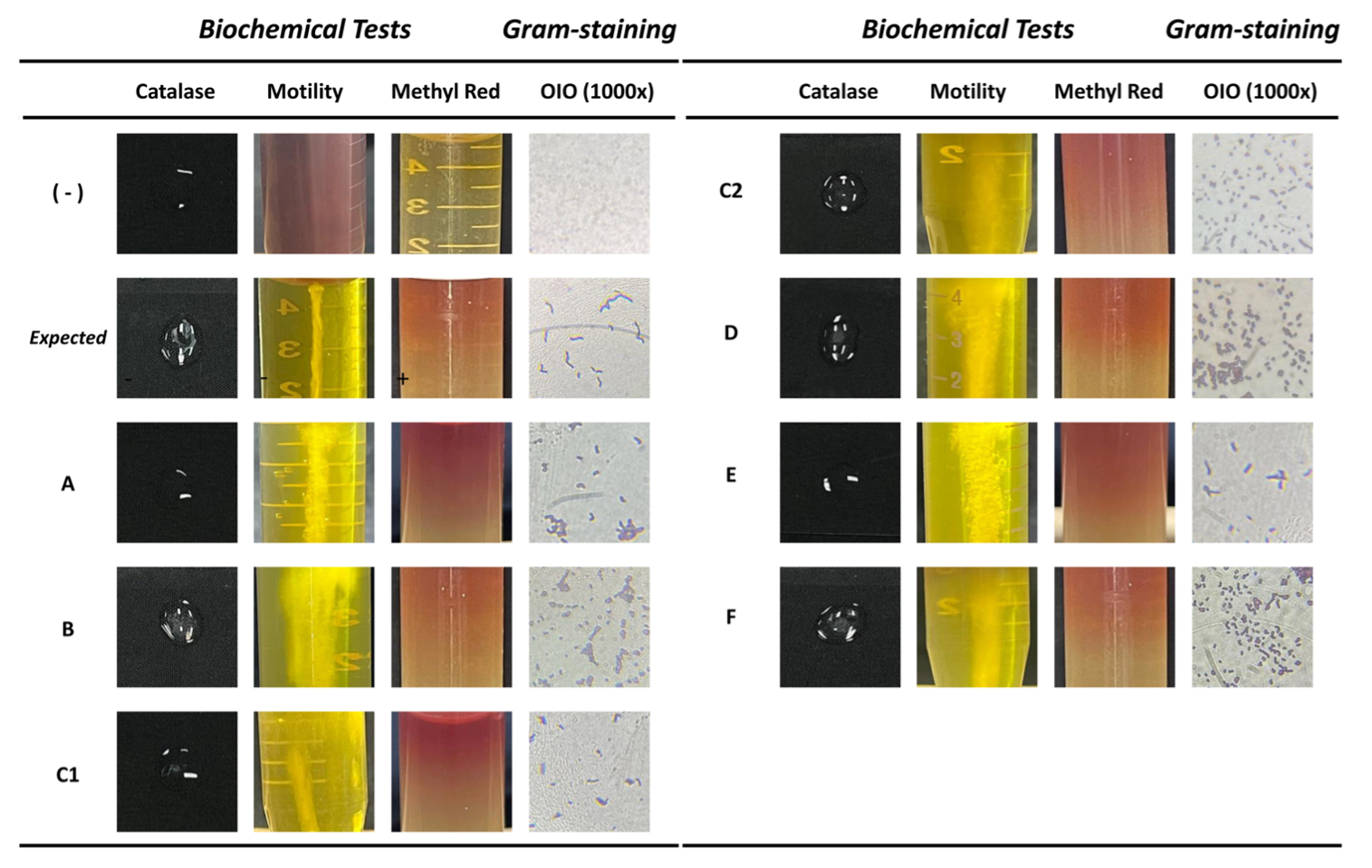VOLUME 18 (Supplement)

SciEnggJ 18 (Supplement) 277-288
available online: 31 July 2025
DOI: https://doi.org/10.54645/202518SupMOY-24
*Corresponding author
Email Address: trizia.edraa@gmail.com
Date received: 27 December 2024
Dates revised: 29 January 2025; 02 June 2025
Date accepted: 06 July 2025
ARTICLE
Exploratory authentication of lactic acid bacteria in commercial probiotic drinks sold in the Philippines
of Santo Tomas, Manila 1015, Philippines
2Museum of Natural History, Ecology and Evolutionary Biology,
University of Colorado Boulder, Colorado, USA
3Ilocos Sur Polytechnic State College, Sta. Maria Campus, Ilocos
Sur 2705, Philippines
Food fraud in various products, including dairy products, is prevalent worldwide, raising concerns about consumer health. With their respective microorganism declaration, fermented food products, like yogurt and milk, are probable targets for product mislabeling, adulteration, and substitution. To address this concern, food authentication through analytical methods ensures improved food safety and information for consumers. Hence, an initial assessment was conducted using morphological and molecular tests to authenticate the reported probiotic species in randomly selected milk and yogurt drinks sold in the Philippine market. Lactic acid bacteria (LAB) were isolated from six different brands and were grown and identified through Gram-staining and biochemical testing. For further testing, the 16S rRNA gene region was sequenced and subjected to BLAST and phylogenetic analyses. Morphological and biochemical tests revealed that all samples were characterized as Gram-positive, catalase-negative, nonmotile, and lactic acid-fermenting LAB isolates. The molecular analyses identified two LAB species, namely Lacticaseibacillus paracasei and Leuconostoc mesenteroides, confirming the species isolated from all the brands are characterized as LAB. However, only one brand matched its exact label, two with uncertain matches, two with nonspecific matches (unspecified labels), and one mismatch. These could indicate possible food adulteration by substitution and enhancement, counterfeiting, and mislabeling from these various probiotic brands. However, inconsistencies may also stem from variations in isolation techniques, environmental conditions, and incubation parameters, which can influence microbial growth dynamics and species viability. Despite these limitations, this study provides valuable insights into the reporting and labeling accuracy of probiotic products sold in the Philippine market.
© 2026 SciEnggJ
Philippine-American Academy of Science and Engineering